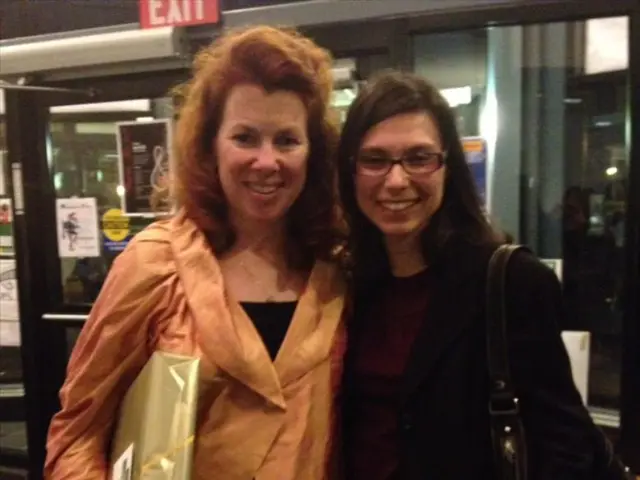Creative industries confronting transformation and innovation amid the COVID-19 pandemic in their business strategies
In a groundbreaking report published by the Creative Industries Policy and Evidence Centre in September 2020, Claudia Burger, Policy Insights Manager, explores the impact of COVID-19 on the creative industries, focusing on business model disruption and innovation. The paper, titled "Business model disruption and innovation during COVID-19 in the creative content industries", can be referenced as Burger (2020*).
The pandemic caused widespread disruptions across various creative sectors, leading to event cancellations, halted productions, and closures of physical venues. However, the crisis also served as a catalyst for innovation, prompting many creative businesses to rapidly adapt and shift to digital platforms.
Many organizations pivoted to digital and remote delivery, offering virtual concerts, online film festivals, digital publishing, and streaming content. This shift accelerated pre-existing trends toward digitalization, hybrid models, and direct-to-consumer approaches, pushing businesses to rethink revenue models and engagement strategies.
Organizations experimented with new monetization tactics, such as pay-what-you-can offers, crowdfunding, subscription services, and virtual experiences, reflecting greater flexibility and creativity in revenue generation. However, the shift to digital also exposed inequalities in access to technology and platforms, disproportionately affecting smaller firms and creators with fewer resources or digital skills.
The paper emphasizes the critical role of government and institutional support in helping the sector weather the crisis, particularly through emergency funding, innovation grants, and initiatives aimed at digital capacity building. The crisis may lead to lasting changes in how creative content is produced, distributed, and monetized, with hybrid physical-digital models emerging as a new norm.
A virtual industry panel was held in June 2020, with participants from film and TV, visual effects, museums, galleries, theatre, music, and dance, to discuss the implications of these experiences for the medium and long term. The discussion was led by Industry Champions, who are trusted and respected practitioners from various content industries across the UK.
While the paper does not provide information about related policy briefs, it sets out areas for possible policy action, as proposed by researchers at CREATe, and examines international trade in the UK's creative industries, among other topics. The brief titled "Three ways to support growth in the creative industries" suggests three ways to support growth in the creative industries, while "Television production, international trade and pressures to consolidate" discusses the UK television production sector as one of Britain's leading creative export sectors.
The brief titled "Audiences and Workforce in Arts, Culture and Heritage" uses census data to provide a comprehensive analysis of audiences and workforce in the arts, culture, and heritage sector, and the policy brief titled "Authors' Earnings in the UK" sets out areas for possible policy action.
The article does not provide information about any advertisements.
Burger, C. (2020). Business model disruption and innovation during COVID-19 in the creative content industries. Creative Industries Policy and Evidence Centre.
Available at: https://our website/policy-briefings/business-model-disruption-and-innovation-during-covid-19-in-the-creative-content-industries
Read also:
- Deepwater Horizon Oil Spill: BP Faces Record-Breaking Settlement - Dubbed 'Largest Environmental Fine Ever Imposed'
- Lawsuit of Phenomenal Magnitude: FIFA under threat due to Diarra's verdict, accused of player injustice
- Citizen Thekla Walker, Minister, advises: "Let's focus on our own homes first"
- Economic Recovery Through Real Estate Renewal




